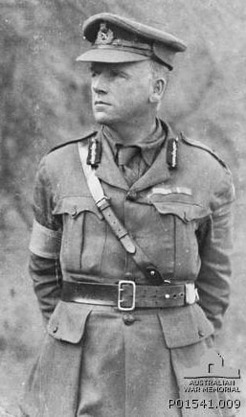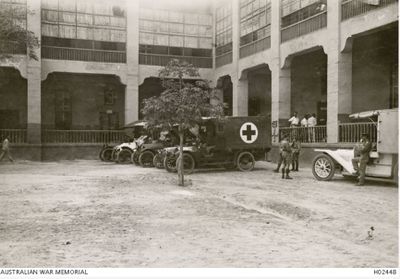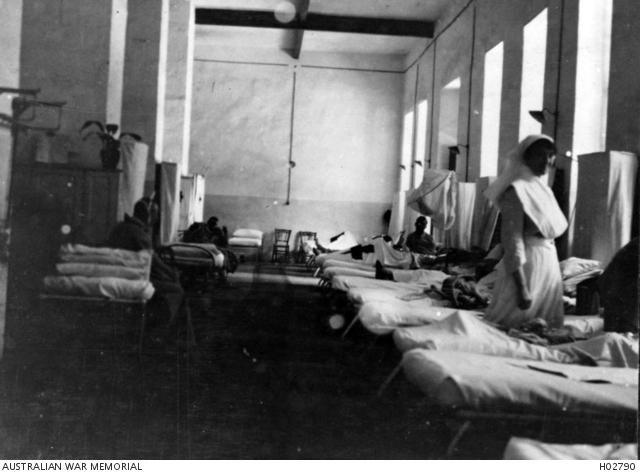William wasn’t accustomed to long stretches of idleness. Now that he was incapacitated, he spent most of his time writing letters or reading books supplied by the Red Cross. With so much spare time, he found his mind wandering.
On the days he felt well enough, he quizzed the nursing staff and patients in the next beds about various subjects. He kept a notebook on his bedside locker for recording the answers to his questions and made further notes about things that piqued his curiosity. He looked forward to being able to explore the buildings that housed the hospital.
William updated his diary most days with brief notes. Some days he simply wrote, “Still in 14th AGH!” which was more an act of frustration than a record. He had just finished such an entry when he saw Colonel Wilson approach his bed.

Colonel Lachlan Wilson
“Colonel. Twice in one week,” William greeted his friend while securing the leather flap of his diary.
“Just a quick visit. Who’s the lady?” The Colonel raised his eyebrows at the vase of flowers on the bedside locker.
“Captain Handley, if you must know.”
The Colonel grinned. “Of course.”
“I haven’t been short of visitors. Lieutenant Land brought in receipts for my mess account. I need to repay Captain Robertson. He kindly paid it for me.”
“That’s jolly good of him,” the Colonel replied and pointed to the end of the bed. “May I?”
“Please,” William replied.
“So, how are you feeling?” The Colonel enquired as he sat, holding his cap on his lap.
“Better than the last time I saw you,” William admitted.
“Yes, you took a nasty turn.”
“And another the following day.”
The Colonel’s smile faded as he nodded, listening to William, noting the pallor of his face. Even his voice lacked its usual strength.
“I felt queer for most of that day. I still feel very tired.”
“Well rest while you can.”
“That is all I can do. Doctor’s orders,” William shrugged.
“Good. Listen to those who know best. Before long, you’ll be back in the saddle.” The Colonel stood to leave.
“I’m afraid I won’t be back.”
Straightening up, Colonel raised his eyebrows as William continued.
“The doctor has recommended a trip home. For six months recuperation.”
“That’s good news.”
“It is. But in some ways…” William’s voice trailed off. He hadn’t fully digested the reality of going home.
The Colonel sat down again. “Why wouldn’t it be? You’ve been away from your family since the outset.”
William nodded. “Three years is a jolly long time. Home seems so remote. There are times when I have trouble picturing the farm. Even my sons. I’m sure they’ve changed in that time.”
“At least you are returning to your wife and children.”
Both men fell quiet.
Finally, the Colonel stood. “So, have they given you a date?”
“No. Not until I’m well enough to travel.”
“Well I’ll pop in when I can.”
William watched the Colonel disappear down the long aisle of the ward. He felt a tightness in his stomach. Going home seemed like venturing into the unknown. For many who occupied beds around him, it would be a blessing. The war interrupted their normal lives. For himself, the war was an extension of himself, of his 20 plus years of training. On the positive side, he thought, “it is only for six months.”

